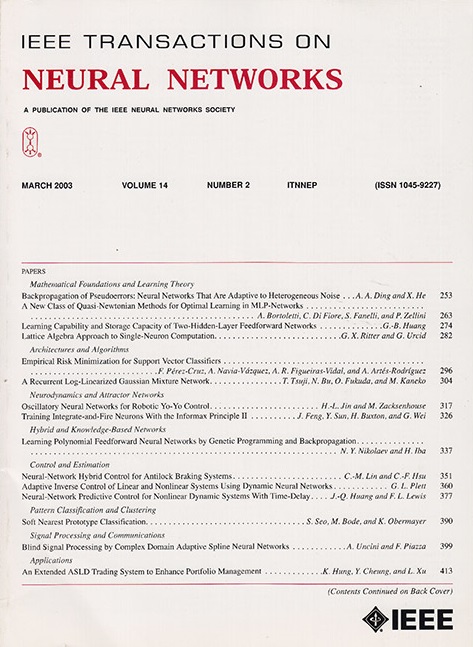用于图像分类的混合量子经典卷积神经网络模型。
IF 10.2
1区 计算机科学
Q1 COMPUTER SCIENCE, ARTIFICIAL INTELLIGENCE
IEEE transactions on neural networks and learning systems
Pub Date : 2023-09-18
DOI:10.1109/TNNLS.2023.3312170
引用次数: 0
摘要
图像分类在遥感中起着重要作用。地球观测不可避免地进入了大数据时代,但对计算能力的高要求已经成为用复杂的机器学习模型分析大量遥感数据的瓶颈。利用量子计算可能有助于通过利用量子特性来解决这一挑战。本文介绍了一种混合量子经典卷积神经网络(QC-CNN),该网络应用量子计算从EO数据中有效提取高级关键特征,用于分类。此外,幅度编码技术的采用减少了所需的量子比特资源。复杂度分析表明,与经典模型相比,该模型可以加速卷积运算。通过TensorFlow Quantum平台,使用不同的EO基准,包括Overhead MNIST、So2Sat LCZ42、PatternNet、RSI-CB256和NaSC-TG2,对该模型的性能进行了评估,它可以获得比经典模型更好的性能,并具有更高的可推广性,验证了QC-CNN模型在EO数据分类任务中的有效性。本文章由计算机程序翻译,如有差异,请以英文原文为准。
Hybrid Quantum-Classical Convolutional Neural Network Model for Image Classification
Image classification plays an important role in remote sensing. Earth observation (EO) has inevitably arrived in the big data era, but the high requirement on computation power has already become a bottleneck for analyzing large amounts of remote sensing data with sophisticated machine learning models. Exploiting quantum computing might contribute to a solution to tackle this challenge by leveraging quantum properties. This article introduces a hybrid quantum-classical convolutional neural network (QC-CNN) that applies quantum computing to effectively extract high-level critical features from EO data for classification purposes. Besides that, the adoption of the amplitude encoding technique reduces the required quantum bit resources. The complexity analysis indicates that the proposed model can accelerate the convolutional operation in comparison with its classical counterpart. The model’s performance is evaluated with different EO benchmarks, including Overhead-MNIST, So2Sat LCZ42, PatternNet, RSI-CB256, and NaSC-TG2, through the TensorFlow Quantum platform, and it can achieve better performance than its classical counterpart and have higher generalizability, which verifies the validity of the QC-CNN model on EO data classification tasks.
求助全文
通过发布文献求助,成功后即可免费获取论文全文。
去求助
来源期刊

IEEE transactions on neural networks and learning systems
COMPUTER SCIENCE, ARTIFICIAL INTELLIGENCE-COMPUTER SCIENCE, HARDWARE & ARCHITECTURE
CiteScore
23.80
自引率
9.60%
发文量
2102
审稿时长
3-8 weeks
期刊介绍:
The focus of IEEE Transactions on Neural Networks and Learning Systems is to present scholarly articles discussing the theory, design, and applications of neural networks as well as other learning systems. The journal primarily highlights technical and scientific research in this domain.
 求助内容:
求助内容: 应助结果提醒方式:
应助结果提醒方式:


